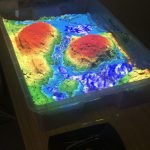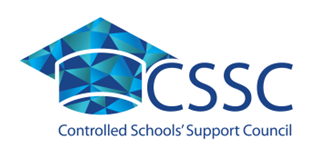GCSE Geography
Geography is all around us in our everyday lives. You only have to watch the evening news to realise that almost every topic is related to what you study in class. It is about places, environments and issues. Studying Geography allows you to gain knowledge and understanding of places and environments from local to global scale. It gives an awareness of how interdependent people and environments are and of the importance of sustainable development and global citizenship. You will acquire many skills and techniques that make you employable and develop you as a competent individual. These include communication, decision making, ICT, map reading and analysis, use of primary and secondary data, analysis and evaluation of statistics and fieldwork enquiry including research and reporting.
The Geography Department has been awarded the prestigious Secondary Geography Quality Mark six times. This is a national award reflecting excellence in teaching and learning so ask your teacher for more details about what is on offer at GCSE in this exciting subject.

CCEA Course Content
CCEA Physical Geography:
- Rivers
- Coasts
- Weather and Climate
- Tectonics
CCEA Human Geography:
- Population
- Changing Urban Areas
- Development
- Managing Our Environment
Assessment
CCEA Unit 1 – Physical Geography
40% of GCSE
CCEA Unit 2 – Human Geography
40% of GCSE
CCEA Unit 3 – Fieldwork Report Paper
20% of GCSE
Students visit the Glendun River in Cushendun to collect first hand data on a river fieldwork study for this paper.
Students will complete a written exam based on their fieldwork data results using their knowledge and experience of fieldwork skills and an understanding of the process of geographical enquiry.
Pupils are fully supported throughout this course with a range of instruction documents, revision booklets, ICT resources and by teachers monitoring progress.
Careers & Further Study
Geography has one of the highest rates of graduate employment in the UK. It provides pupils with the opportunity to study both the Humanities and The Sciences in a natural, coherent and inclusive way. The close link between Geography and the ever changing world around us makes for a long list of related careers.
Graduates are often targeted by employers as they possess highly developed skills in data analysis, ICT, communication, teamwork, statistical analysis, literacy and fieldwork. These transferable skills lead to employment opportunities in GIS (Geographical Information Systems), finance, town planning, business, environmental consultancy, tourism, teaching and the social sciences.
This subject is also very popular at A level. For further information see the Careers in Geography display in the corridor or ask your teacher.
Teaching Methods
A range of teaching methods are used including whole class teaching, paired and group work, individual self-directed study, debates and internet research. Study skills are targeted to aid revision of each topic and target-setting and self-review are used to support learning. Pedagogy is enhanced through the use of innovative ICT resources such as video clips and GIS systems. Pupils will engage in peer and self assessment. Teaching strategies such as online assessments are used to help develop independent learners.
